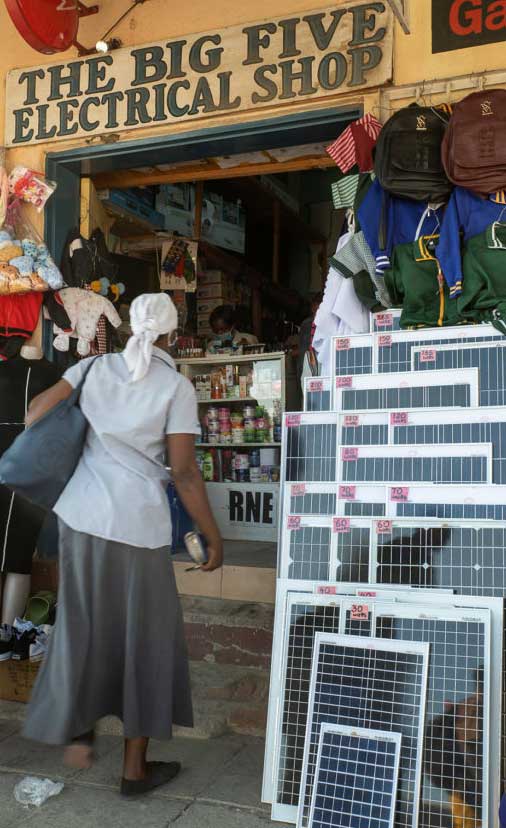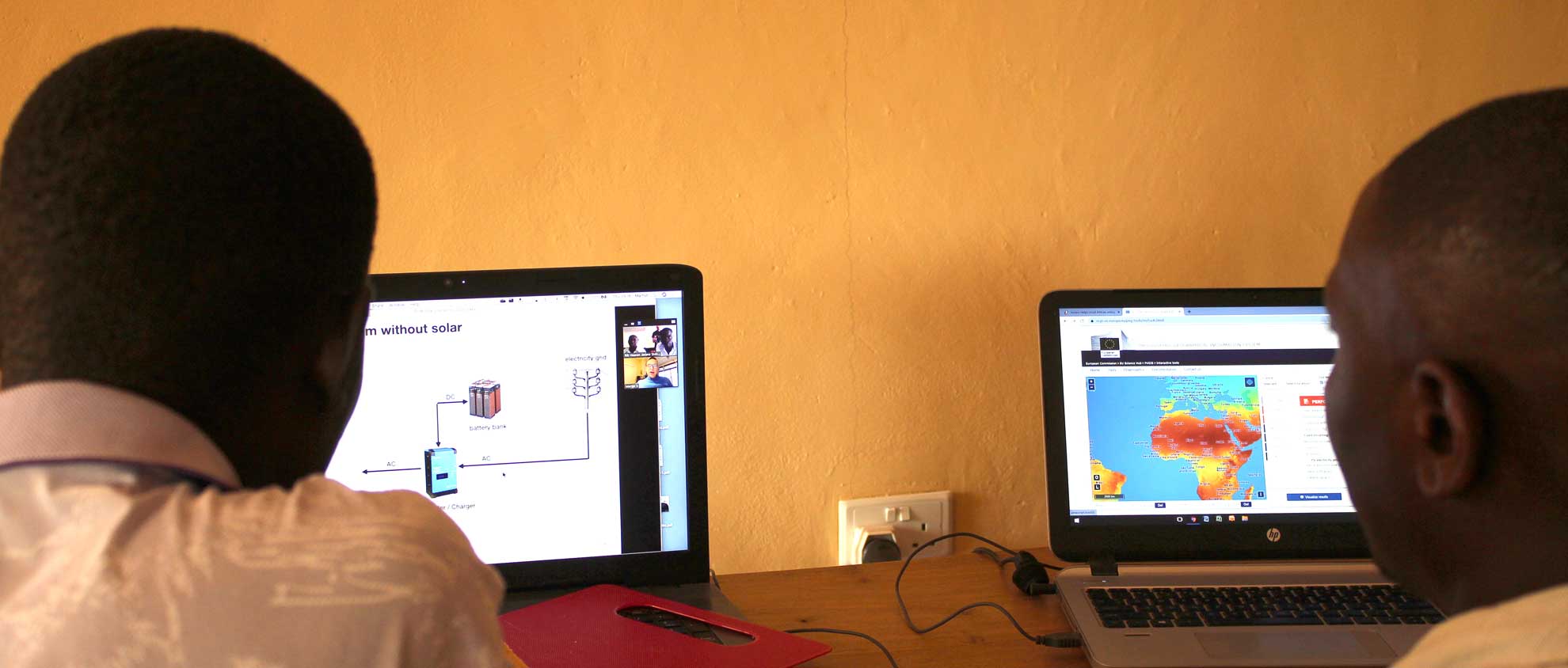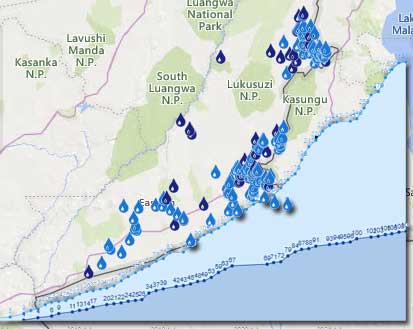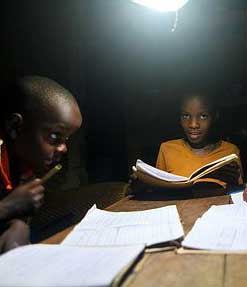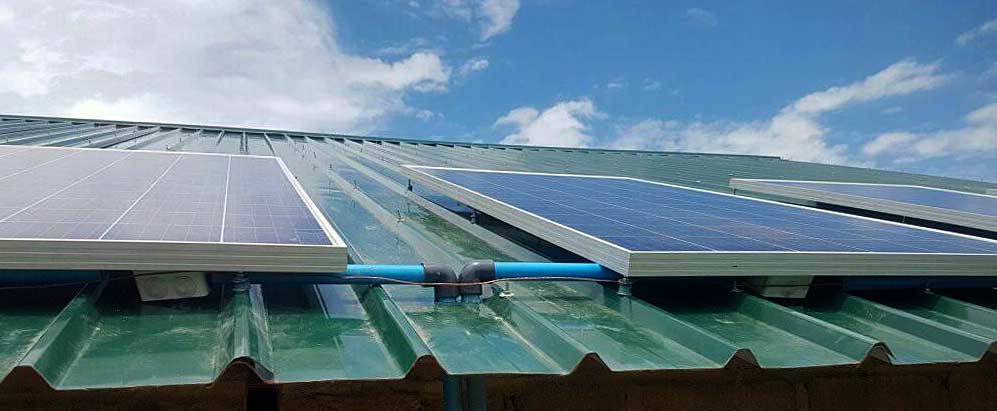Zambia is located just below the equator, not a bad place for solar energy.
Many local shops offer a wide variety of solar products, but every retailer wants to sell what is in his or her store and wants to sell as much of it as possible. Our experience is that there is no local knowledge of solar system design in the Eastern Province, even in the shops that sell the equipment. As a result, customers (often small-scale entrepreneurs) are told very confusing and contradicting stories in the shops and therefore often walk out the door without solar equipment.
There is a demand for well-trained local designers and installers of solar systems, who offer fair solutions, making use of the local supply.
Common African shop selling solar equipment
Jacana has successfully tested this on a very small scale with the help of senior PUM expert, Martijn Schootstra, and learned a lot from it. Now Jacana wants to expand the training of entrepreneurs in the solar sector.
Pilot online solar design training by PUM
Pilot solar installation training
Zambia’s energy supply
The demand for energy in Zambia is increasing rapidly. The Zambian electricity grid gets its power mainly from hydroelectric power stations. Climate change has been limiting the water supply to these stations for several years now. In times of emergency, the available energy is distributed over Zambia by (in turns) disconnecting everyone from the grid for a while (sometimes half days with/without electricity). We call that “Load shedding”. Fortunately, the last rainy season was good and the electricity supply is now more or less as it should be. However, the rains have delayed a month and a half this year. Nobody knows if there will still come enough rain to fill the lakes to a level to provide electricity until November 2022.
Another issue is that Zambia is very sparsely populated (an average of 26 people on a piece of land of 1 by 1 km). Just like the water supply, the energy supply also suffers from this. Rural grid power may never become profitable in its current form.
Plan
In the past few years we have learned how the small-scale entrepreneurs who Jacana trained in the water sector, have improved the lives of more than 70,000 people. And that number is growing every day.
Jacana will use that experience to do something similar in the solar energy sector. Early next year we will train and guide a number of small-scale entrepreneurs in designing and installing good quality, yet affordable solar solutions for their community and customers.
Development requires energy.
Let’s for example enable children to study after sunset.
Many small businesses can significantly increase their productivity with a little energy. For instance:
- a shopkeeper who sells food can keep his goods longer fresh with a refrigerator,
- someone can charge phones for his or her fellow villagers,
- a hairdresser may start using a clipper.
Thrift shop Castricum is part of it.
You too?
Your small contribution makes a big difference to a Zambian family.
If you would like to support this project, please donate below:
- € 6,190 raised now, still € 3,810 of € 10,000 needed. 62%

